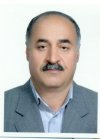| نویسندگان | عباس لقمان-حسین تورنگ |
|---|
| نشریه | J BRAZ SOC MECH SCI |
|---|
| تاریخ انتشار | 2015-9-01 |
|---|
| نمایه نشریه | ISI ,SCOPUS |
|---|
چکیده مقاله
This paper describes an analytical–numerical
model developed for non-stationary electro-thermo-mechanical
creep response of a smart sphere made of
polyvinylidene fluoride (PVDF) using Burgers’ creep
model. The piezoelectric properties of the PVDF are used
to control creep deformation of the sphere. Time-dependent
stresses, displacements, electric potential and strains are
calculated using Mendelson’s method of successive
approximation. The vessel is subjected to internal and
external pressures, distributed temperature fields and an
applied electric potential. Two loading combinations have
been considered in this study. All mechanical, thermal and
piezoelectric properties are selected from the experimental
data existed in the literature. All creep parameters for
Burgers’ model are functions of time, temperature and
stress. Their functional relationship is obtained using a
nonlinear regression. Therefore, this study is a nonlinear
time-dependent analysis. Total strains are assumed to be
the sum of elastic, thermal, electrical and creep strains.
Creep strains are time, temperature and stress dependent.
Using the equations of equilibrium, compatibility, Maxwell’s
equation for free electric charge and stress–strain
relations, a differential equation, containing creep strains,
for spherical vessel is obtained. A new semi-analytical
solution has been developed to find displacement, stresses,
strains and electric potential in terms of time-dependent
creep strains. Creep strain rates are related to the Burgers’
creep model and current stresses with the Prandtl–Reuss
relations. Using Mendelson’s method of successive
approximation, the histories of electric potential, radial,
circumferential and effective stresses and strains are calculated.
It has been found that by applying a suitable
electric potential deformation of the sphere can be
controlled.
